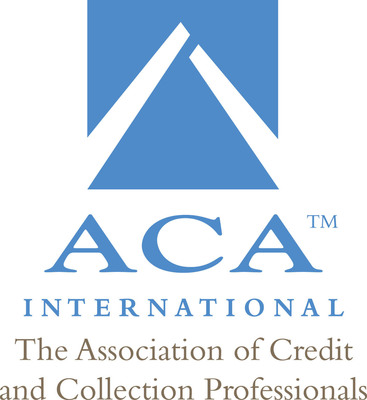
MINNEAPOLIS, March 20, 2014 /PRNewswire-USNewswire/ -- ACA International, the largest trade group for the third-party debt collection industry, today responded to the Consumer Financial Protection Bureau's (CFPB) annual report on debt collection complaints. ACA also conducts its own analysisof the publicly available data to gain insights that will help improve customer service and the future collection of consumer debts.
"As an industry that takes complaints and their resolution with consumers very seriously, the CFPB's report offers helpful perspective but isn't valuable for setting public policy. As important as these raw data are, it seeks to justify the CFPB's existence but falls short in looking at the underlying causes that better explain this information," ACA International CEO Pat Morris said. "We will continue to conduct our own quarterly analysis of the data and encourage consumers to communicate with debt collectors because avoiding contact does not make a debt disappear."
Among the key points ACA has identified as missing from the CFPB's analysis, includes:
- The CFPB's definition of a complaint is very subjective. While a consumer may not like something (such as being contacted about a debt or receiving multiple calls) it does not mean that the collector actually did anything wrong. Neither the CFPB nor the FTC investigates these complaints as to whether a complaint actually violates the law.Painting the collection of consumer debts with a broad brush and then alluding it ties to bad behavior paints an inaccurate picture of an extremely necessary, yet sometimes uncomfortable, activity. ACA advocates that the CFPB adopt a more meaningful definition of what constitutes a complaint that is limited to consumer allegations of wrongful conduct and does not include the amorphous concept of general consumer dissatisfaction outside of wrongful conduct.
- Some factors that contribute to being contacted about a debt they may not owe are the mobile nature of society and the unwillingness of most consumers to communicate with debt collectors. Further, federal law prohibits disclosure of specific information about a debt until a consumer's identity has been verified. Hearing from a collection agency that they don't know and never had interaction with can often be confusing.
- A closer look at concerns over call frequency leaves out discussion of a very significant "catch-22," which is a significant underlying factor prompting debt collectors to call more often instead of leaving voice mail messages. Under the Fair Debt Collections Practices Act (FDCPA) a debt collector can not divulge the existence of a consumer debt to anyone but the consumer or their attorney, and it also says that a debt collector must identify themselves. There is currently no safe harbor language for leaving a voice mail that assures a debt collector can comply with the FDCPA.ACA is calling on the CFPB for the creation of safe harbor language to allow collectors to leave voice mail messages that comply with FDCPA.
Based on ACA's review of the publicly available data from the CFPB, 96% of complaints are responded to in a timely manner. In addition 94% of complaints are "closed" in some manner."We believe that when given the chance, debt collectors do want to work with consumers to resolve their concerns," Morris said.
ACA International is the comprehensive, knowledge-based resource for the credit and collection industry.Founded in 1939, ACA brings together nearly 5,000 members in the United States and abroad, and their more than 300,000 employees, including third-party collection agencies, asset buyers, attorneys, creditors and vendor affiliates. Click hereto access ACA's white paper on debt collection complaints.
Contact: Mark Schiffman, PR Director
Tel. (952) 259-2124 or schiffman@acainternational.org
Logo- http://photos.prnewswire.com/prnh/20101018/ACALOGO
SOURCE ACA International

